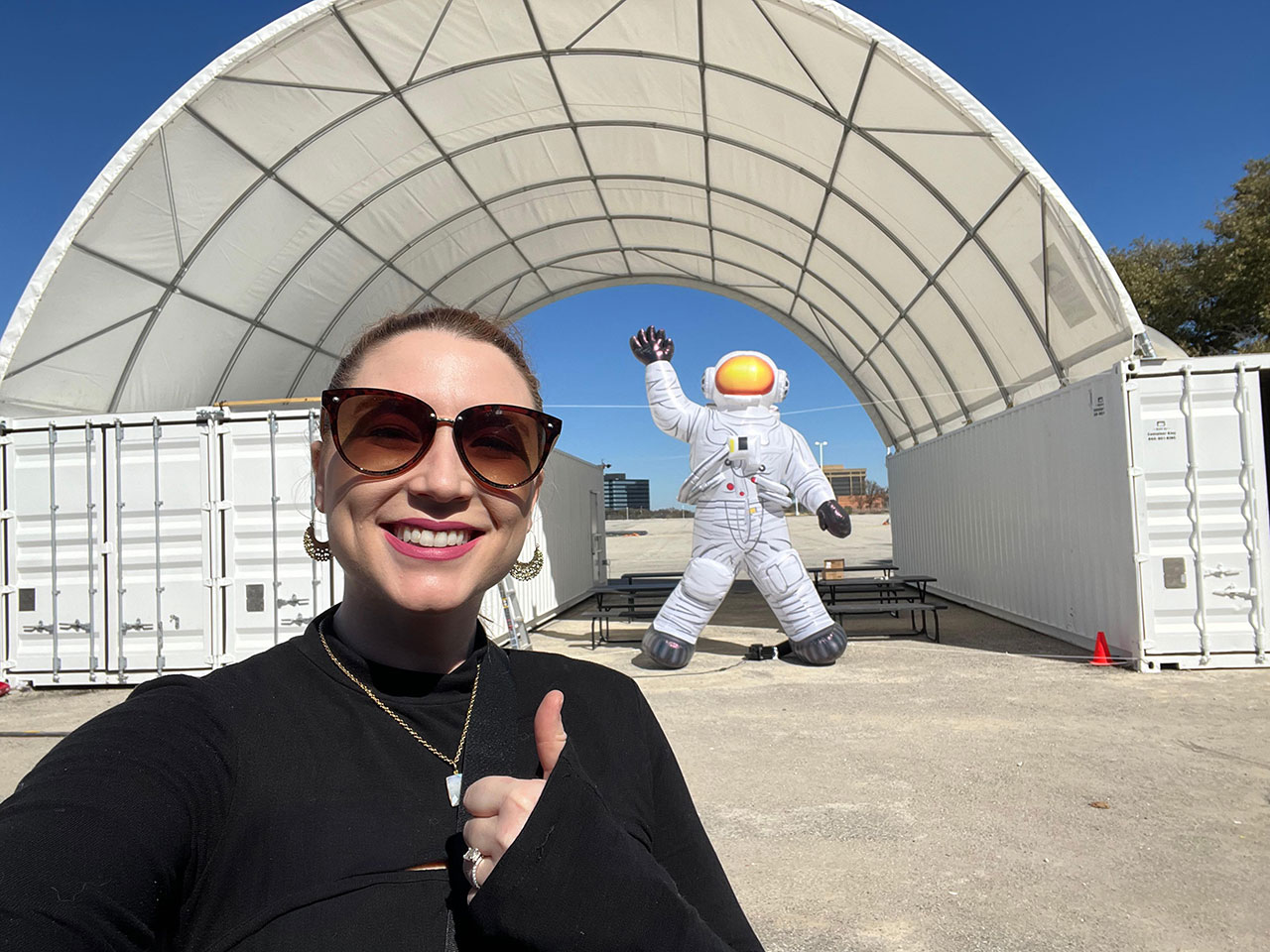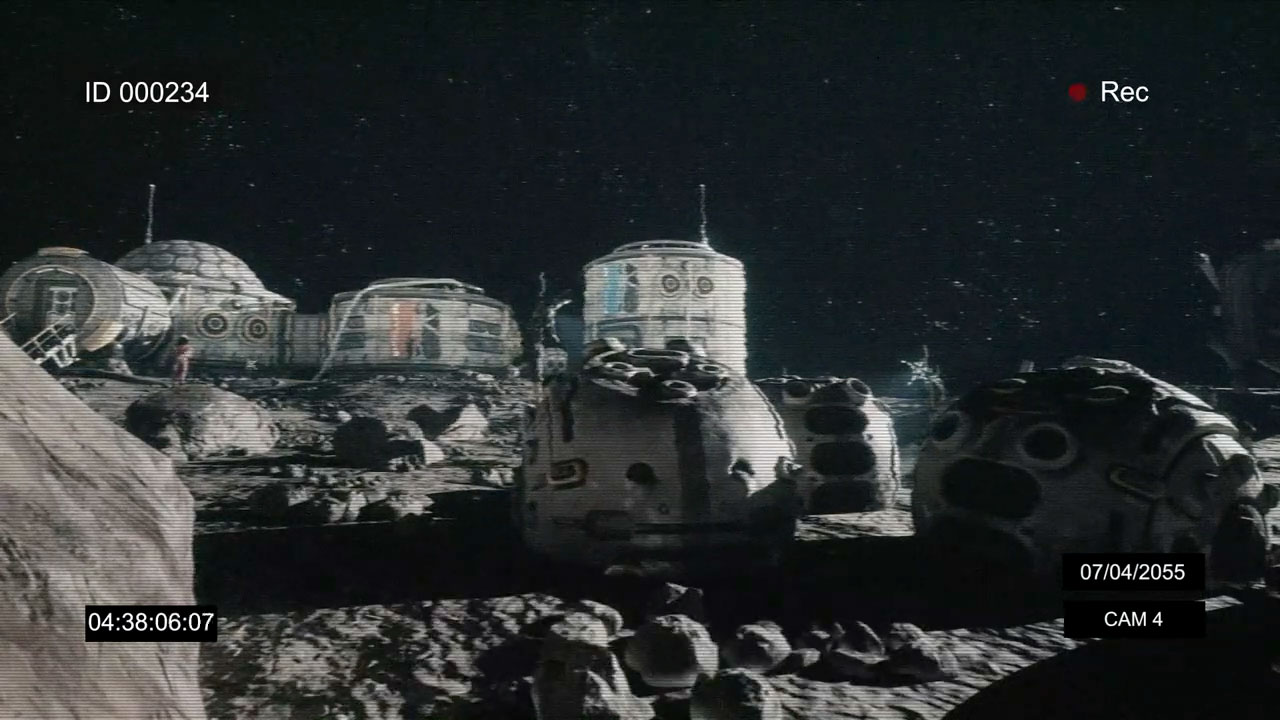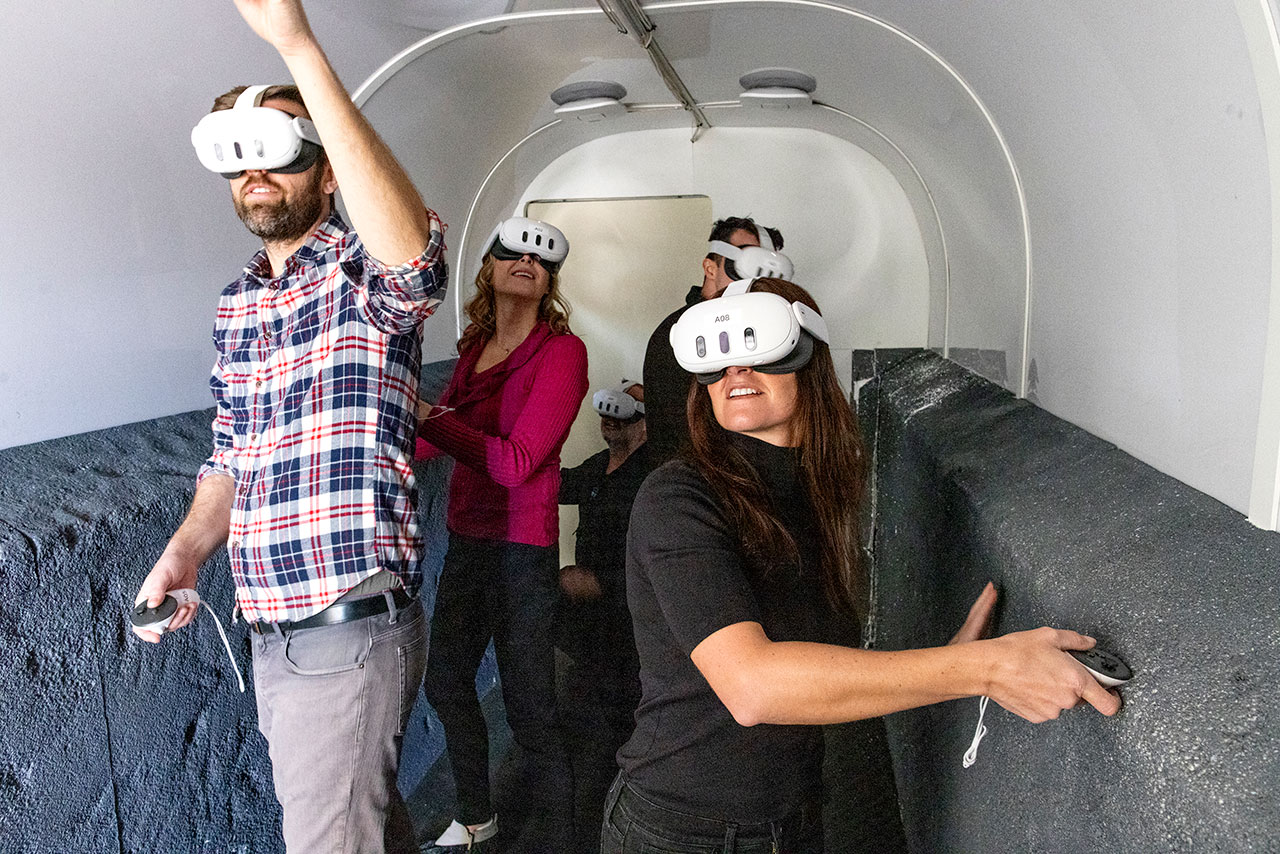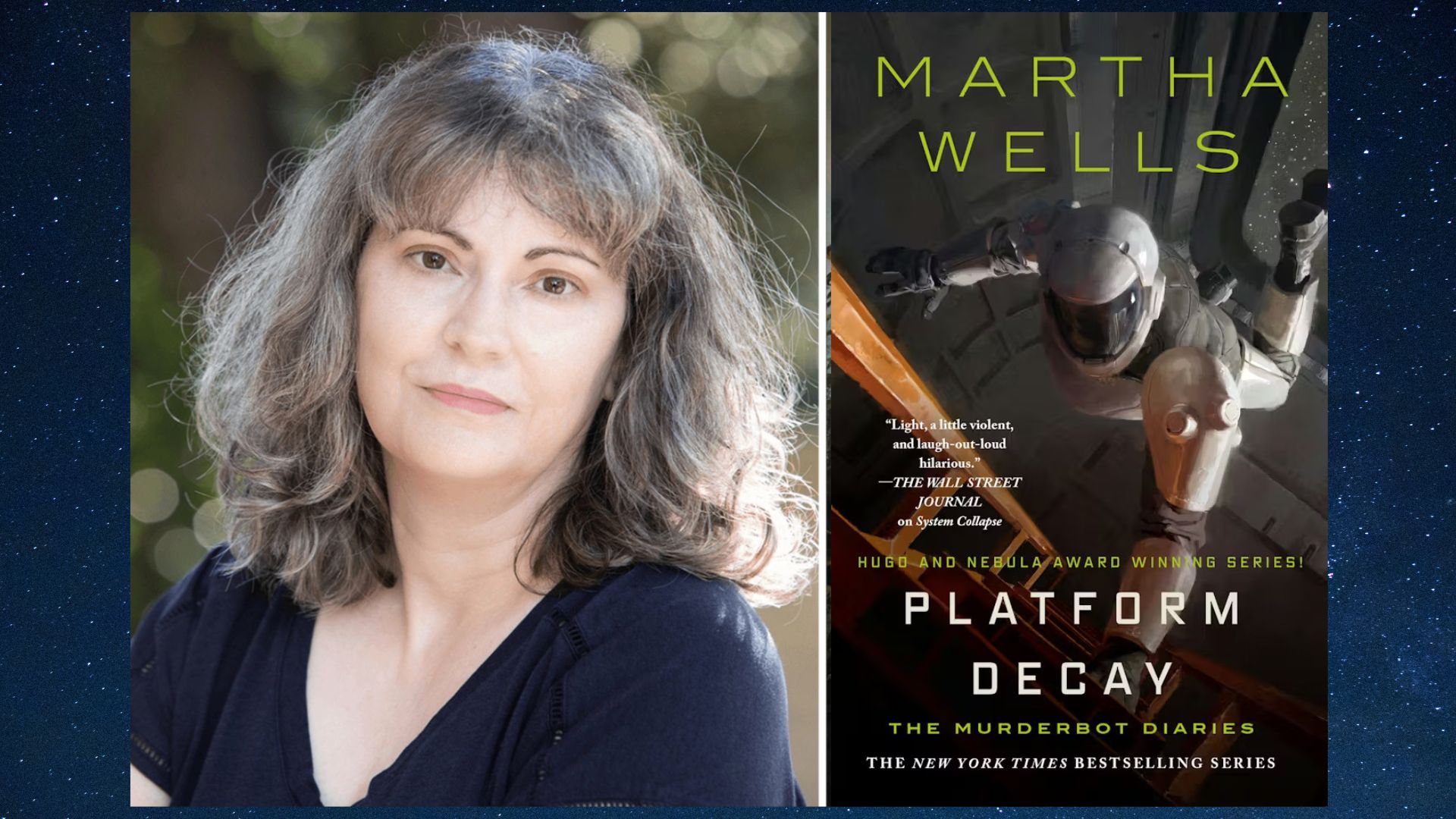Apollo astronaut's granddaughter opens immersive 'Lunar Light' moonwalk experience in Dallas
'Lunar Light' is built by people who know hard science but who also love sci-fi.
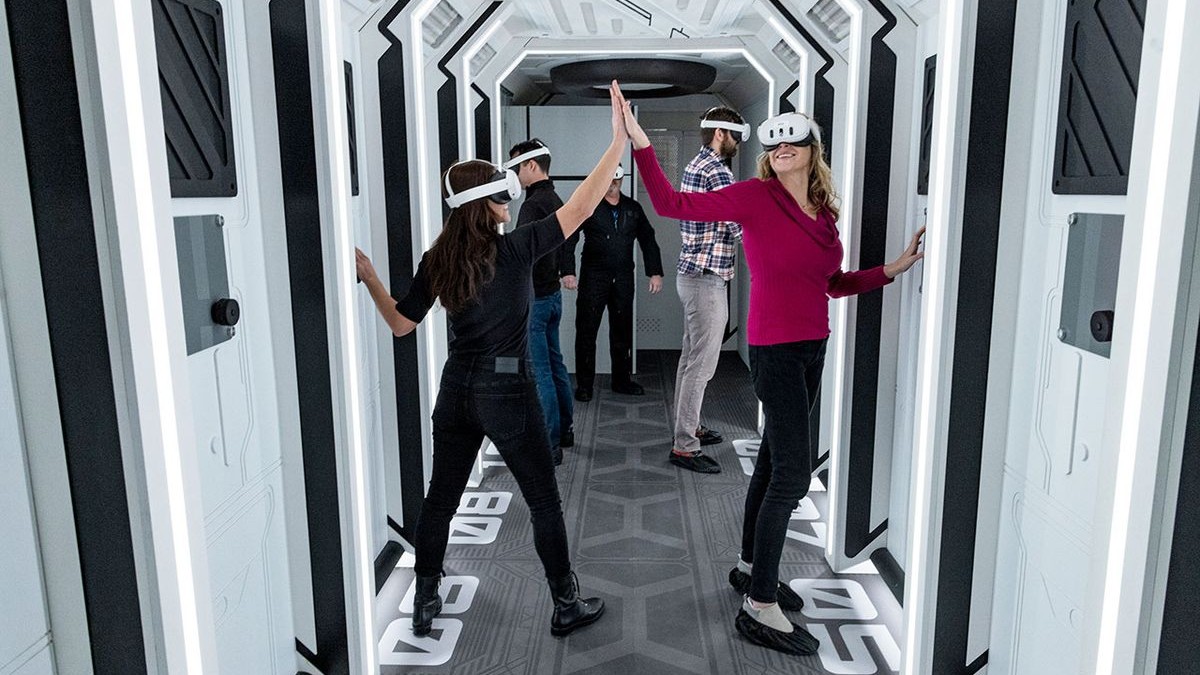
What do you get when you mix an Apollo astronaut's legacy with a trio of shipping containers, the latest in VR technology, the cousin of a "Star Wars" robot and an escape room like no other?
Well, if you are Danielle Roosa, the answer is clear: An immersive experience that can give anyone (10 years of age or older) the chance to explore the moon.
Launching on Leap Day (Feb. 29) in Dallas, Texas, "The Lunar Light: Discovery" is the creation of Roosa's "Back to Space," a transmedia organization that is working to inspire more interest in space, science and technology through mixed-reality installations. Part interactive theater and part virtual simulation, "The Lunar Light" is an hour-long adventure that challenges groups of visitors to become astronauts as they arrive on the moon following an asteroid strike in the year 2055.
Related: NASA astronaut walks on the 'moon' to get ready for Artemis landings (photos)
"'Lunar Light' is built by people who know hard science but who also love sci-fi," said Roosa in an interview with collectSPACE.com. "So when you enter, it will be familiar because it is set in the near future, but we are also asking you to take a leap of imagination into a little bit of science fiction."
As both an actor and the granddaughter of an Apollo astronaut, Roosa is perhaps uniquely positioned to blend space history with space odyssey. Her grandfather, Stu Roosa, orbited the moon on NASA's Apollo 14 mission in 1971.
"I think that this has a direct connection to my grandfather," said Roosa. "I followed in his footsteps by working at NASA and I loved that, but I always felt called by the entertainment industry. I think that by bridging my passions that I have created the perfect way to honor his memory."
Three canisters and a bot
From the outside, "The Lunar Light: Discovery" does not exactly look like a state-of-the-art lunar base or next-generation rocket ready to blast off to the moon.
Instead, guests arrive the empty parking lot of a former shopping mall to find a collection of white conex boxes with only an inflatable astronaut as their hint they are in the right place. Once inside the first container, however, all that changes.
"When you walk in, you're greeted by representatives of the Intergalactic Space Agency, the IGSA, who tell you about the year 2055 and report the news that there has been a massive asteroid that has hit the moon. The people that are coming, like you and the other visitors who are experiencing this, are mission specialists who were sent from Earth," said Roosa.
As you soon learn, the impact has released a glowing light with strange properties that could threaten the future of everyone on the lunar surface. Here guests put on VR glasses, but unlike other immersive installations, the experience that follows is not entirely virtual.
"Everything you see in VR has been modeled inside the container on a one-to-one scale. So when you reach out to touch things that you see in simulation, you also actually touch them in real life," said Roosa. "It's a whole other level of immersion."
From there, guests board a virtual lunar shuttle to ride to the site of the impact and perform their first "moonwalk."
Related: Missions to the moon: Past, present and future
Breaking space news, the latest updates on rocket launches, skywatching events and more!
"What's so cool about this is, as you walk into this area, we have put down some material that makes it feel like you're actually walking on the moon," Roosa told collectSPACE. "And be ready to have all of your senses activated, as based on the advice of Apollo 16 moonwalker Charlie Duke — my grandfather's best friend — we have recreated the smell of the moon, too."
Here guests also meet DG-33, a small exploration robot with a snarky attitude and a deep Texan accent, the latter a remnant of his previous use in the Dallas oil fields. "Deej," as he is called, is here to help you collect samples of the "lunar light" to undergo analysis in your next destination, the research lab.
"Deej is the most adorable thing," said Roosa. "He was built by some of the same people who worked on BB-8 for 'Star Wars.'"
In the research lab, guests remove their VR glasses and work with DG-33 to try to uncover the true nature of the lunar light. Once successful, everyone heads to the Officers Club to enjoy space treats and cosmic cocktails.
Back to the moon
Tickets are now on sale for "The Lunar Light: Discovery," which runs from Thursday (Feb. 29) through April 28. The experience is being offered four days a week, Thursday through Sunday.
General admission is $55, with veterans and seniors receiving a $5 discount. (Booking fees and taxes are additional.) Reservations can range from one to five people, though special services are available for groups of 10 or more.
"I am looking forward to returning to the moon!" said Duke, who will be on site for a private visit on March 3.
The venue will also a host a public party for the total solar eclipse on April 8. Dallas is in the path of totality, and Roosa expects hundreds of people to show up to witness the spectacle from "The Lunar Light: Discovery" grounds.
Roosa and her Back to Space team are already planning the next iteration of "Lunar Light," with even more ways to immerse guests in the experience. That could include getting physically dressed for the part, and Roosa welcomes anyone who wants to do so to go ahead now.
"If you have your own spacesuit, I think you should definitely wear it!" she said. "But for this version, casual wear and virtual spacesuits are just fine, too."
Space.com readers can receive 10% off admission by using the discount code "SPACEdotCOM" when buying tickets on the "Lunar Light" website.
Follow collectSPACE.com on Facebook and on Twitter at @collectSPACE. Copyright 2024 collectSPACE.com. All rights reserved.

Robert Pearlman is a space historian, journalist and the founder and editor of collectSPACE.com, a daily news publication and community devoted to space history with a particular focus on how and where space exploration intersects with pop culture. Pearlman is also a contributing writer for Space.com and co-author of "Space Stations: The Art, Science, and Reality of Working in Space” published by Smithsonian Books in 2018.
In 2009, he was inducted into the U.S. Space Camp Hall of Fame in Huntsville, Alabama. In 2021, he was honored by the American Astronautical Society with the Ordway Award for Sustained Excellence in Spaceflight History. In 2023, the National Space Club Florida Committee recognized Pearlman with the Kolcum News and Communications Award for excellence in telling the space story along the Space Coast and throughout the world.

